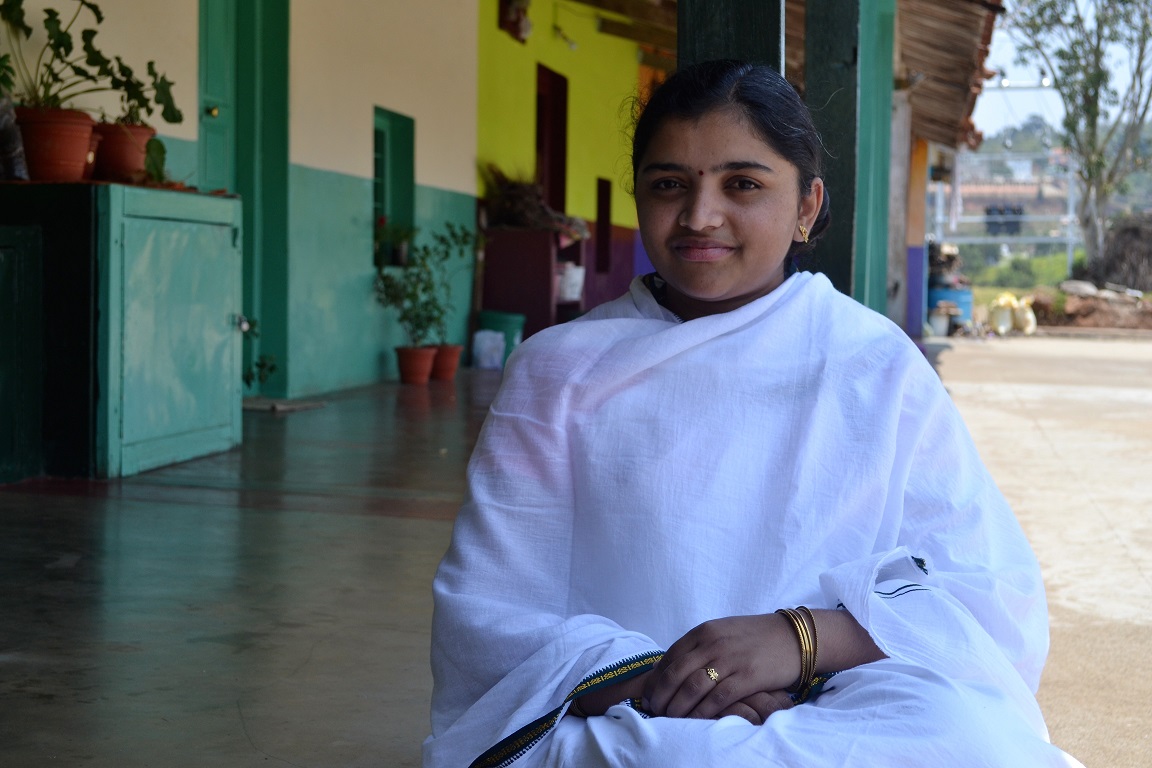On a sunny Sunday in April, the narrow lanes of Pudhu Kotagiri village in the Kotagiri block of the Nilgiris district wears a deserted look. Pudhu Kotagiri, it seems, has deliberately set itself aside from the bustling bazaars of Kotagiri. The village looks distinctly quaint with an infrequent bus connectivity. Missing a bus to Pudhu Kotagiri would mean a wait until eternity or to an auto-rickshaw ride to reach home.
One of the first buildings to catch your attention in the village is the office of the Kota Tribe Youth Welfare Association. The route to a good education and job for many youths in the village runs through this very office.
Amid the old-world charm of Pudhu Kotagiri and the rising aspirations of a new India, stands Janani, the first woman doctor from Kota tribe. Dressed in a traditional saree and speaking in fluent English, Janani appears to be the perfect embodiment of Pudhu Kotagiri’s past and present. A past full of rich tribal heritage and a present where a girl from the village mustered the courage to step out and move all the way to Trichy to study medicine. If the villages of Kota are famous for their cleanliness, villagers are known for being shy. Women here are usually not expected to come out of their rooms if an outsider comes visiting. But all those customs are slowly withering with more and more women getting education. They now seem to be gaining new confidence. And Janani exudes the same confidence.
It is this inspiring tale of Janani that the district unit of Dravida Munnetra Kazhagam in the Nilgiris has made its trump card to bolster their arguments against the controversial National Eligibility-Cum-Entrance Test (NEET) for medical admissions. The DMK, much like its rival the AIADMK, has promised to do away with NEET for medical admissions, if elected to power.
Opposition to the national eligibility test from major political parties and students have been an emotive issue in Tamil Nadu with at least two students having killed themselves over NEET results in the recent past. This elections, both the parties are trying to cash in this emotion.
Born and brought up in the Kota village, Janani aspired to study medicine because of her father. One of the first men to get a job in a public sector bank, her father had died of a sudden heart attack. Janani was only seven. Ever since she wanted to be a doctor.
Unaware of the world outside school
“It was only because of my mother’s undaunted support that I and my siblings were able to get good education,” she says. While in school, Janani received some financial assistance from good Samaritans like Sonia Bendicova, a Czech researcher who at the time was researching about Kotas and institutions like the Nilgiri Adivasi Welfare Association.
Until Class 10, Janani says she was not aware of the fact that additional coaching classes for the Science and Maths could help her improve her marks. In those days, except a few elite schools, the state-run schools in the district didn’t have such facilities.
It was only when one of her relatives, who used to work in Nagappattinam, advised her to join a private school in Erode.
“I came to know that there are institutes providing coaching exclusively for three subjects — Maths, Physics and Chemistry. So, I went to Erode. Such coaching classes are important to help you secure a medical seat,” she says.
That was the first time she had moved out of her village to another city in the plains to study. If living away from her family and moving into a new place with a different climate weren’t enough to shake Janani’s confidence, it was the school that she got in which took her by surprise.
“Until then I did not face discrimination based on the marks I scored. Whether one gets good marks or not, students back in my village were never segregated on that basis. But in the new school, I came to know that you are part of a particular section in the same class because of your scores. That was a huge shocker for me,” she says.
Lonely and missing home, the only way Janani figured out to forget her woes was to study more, work harder. “My efforts paid off as I managed to score more marks than the cut-off required for medical admissions,” says Janani.
Stepping out of the comfort zone
“At that time, medical admissions were based on cut-off marks. I wanted to study in Chennai or Coimbatore. But according to my rank, I got into the government medical college in Trichy. However, it was only during my years in Trichy that I learnt not just how the human body functions but the emotions that control human beings,” she says, fondly recalling her days in Trichy, a place she learnt to love.
Last year, Janani got married and moved to Bengaluru. Incidentally, her father-in-law, Varadarajan, happens to be the first doctor from Kota tribe. She is now practising in a private hospital in Bengaluru and also preparing for her post-graduation. “I want to specialise in general medicine and then in nephrology,” she tells us with a look that clearly says that the young, confident woman knows what she wants from life.
However, there is something that she is completely unaware of. When she finally comes to know that the DMK has made her the face of their campaign against the NEET, a flummoxed Janani seems unable to decide whether to celebrate her life or to worry about her achievements being politicised.
She acknowledges that NEET can be a big hindrance to many youngsters from her community in pursuing their dreams. “Let’s hope everything will change after the elections.”



